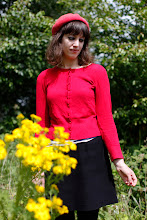 You never quite know what to expect from Bill Drummond, but probably not the balding, mild-mannered, softly-spoken man who turns up bang on time to talk about his new book, '17'.
You never quite know what to expect from Bill Drummond, but probably not the balding, mild-mannered, softly-spoken man who turns up bang on time to talk about his new book, '17'.The 55-year-old is wearing a loose shirt with the sleeves rolled up, and looks more like a tired father than an art/ noise terrorist.
One half, along with fellow hell-raiser Jimmy Cauty, of the KLF, he's burned a million pounds on a Scottish island, launched a competition to find the worst art in the UK, written a manual on how to have a number one record and dumped a dead sheep at the Brit awards.
Prior that, he formed connections to the Northwest playing in Liverpool band Big in Japan and producing Echo and the Bunnymen.
One of Drummond's previous books, the autobiographical '45', is a classic of its genre, and Drummond is also a convincing speaker.
As he reminds us, he's been through art school, and the subject of his book could just as easily be an art project as a musical experiment.
By this reasoning, Drummond’s No Music Day, during which we're urged to ignore all music, and the first of which was held on November 21 last year, would be a pop art happening.
It could just as easily be a political act, like a Go Slow at Work Day.
Indeed, Drummond reads from the first pages of ‘17’ in the manner of a politician reading a manifesto.
Much like punk, The 17 is a way of making music that’s open to anyone, and Drummond commands, "Dispense with all previous forms of music and music-making and start again."
The creators should have “No knowledge of what music should sound like.”
The difference, however, is that once the work has been recorded, there is only one airing before it is deleted forever – unlike the Sex Pistols, no reunions years later or repackaging of the back catalogue.
Despite the often confrontational tone he assumes, though, Drummond is clearly a music lover.
He’s trying to come to terms with the fast-changing world of technology around us, and the sheer, overwhelming availability of modern music; the idea that you can go on Napster and easily download any piece of music from anywhere in the world, at any time, and it's instantly available to you.
He's baffled by the "ubiquity of music", and the way you can listen to an Ipod anywhere you want, anytime.
Drummond enters the debate of 'old music' versus 'new music' by relinquishing the standpoint of many of his generation and remaining optimistic about the power of new music to “open a room in your head you've never been in before”.
Anyone who's ever had an epiphany to music, such as Drummond's childhood discovery of 'Strawberry Fields' by The Beatles, been unable to stop listening to a new record over and over again, or been moved to tears by an album (whether or not it was 'Pet Sounds', the example Drummond cites), will empathise with this book.
Drummond reminds too us that music can arise from anything, in the most unlikely places.
The 17 originates from the sounds of the workings of Drummond's Land Rover, "roaring and swelling", and "harmonising with the wind".
An attempt to record the noises around him with an unlikely contraption of sound equipment and gaffer tape, during the 2 hours and 12 minutes it takes to drive from coast to coast across the north of the county, ended in failure, and instead Drummond decided to recreate the "sonic Vikings" inside his Land Rover with a choir of 17 voices.
The choir uses “No libretto, lyrics or words; no time signatures, rhythm or beats", and has "no knowledge of memory, counterpoint or harmony.”
A 17 performance in Derby this year gathered 1,700 residents of the city, grouped into 17 members of 100 different professions, from doctors to dinner ladies.
Drummond exhorts nineteen, twenty and twenty-one-year-olds in the audience to carry on making music in the hope that it will "change the world".
Maybe it's about time we turn our MP3 players off and start listening to those “internal soundscapes” again.
www.the17.org



